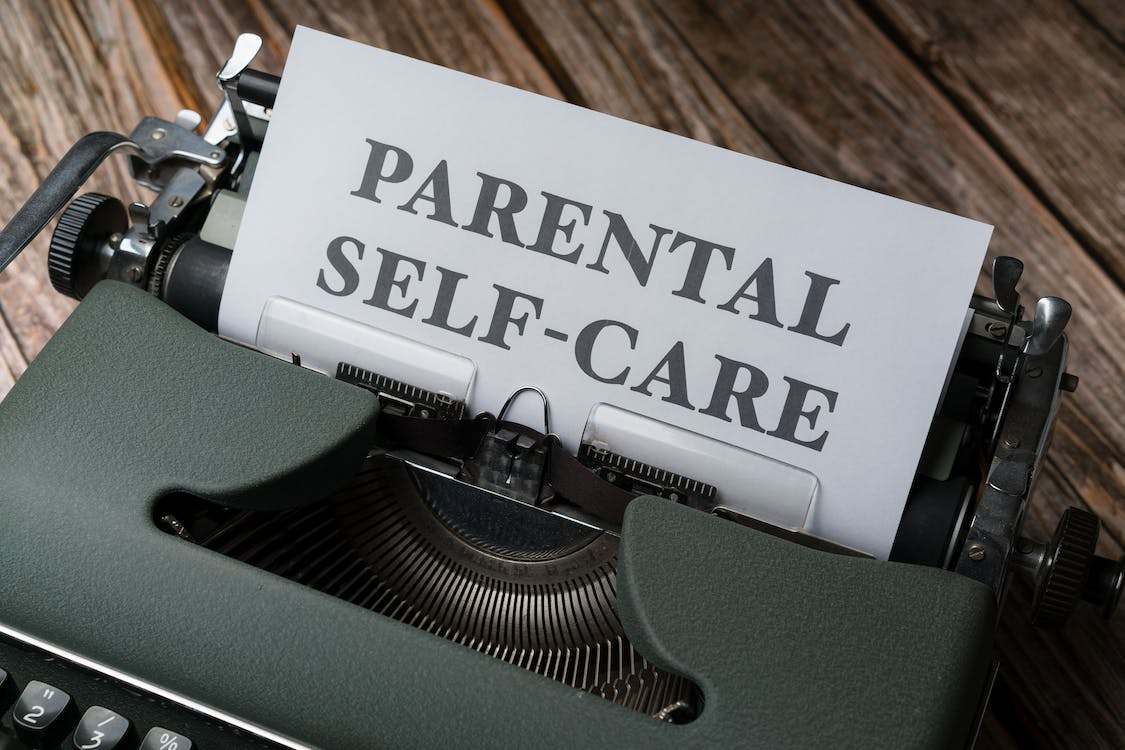Understanding the Importance of Parental Self-Care
Parenthood, in the modern era, is filled with unique challenges that often leave parents feeling overwhelmed and exhausted. The demands of juggling work, household responsibilities, and the emotional and physical needs of their children can take a toll on even the most resilient individuals. In this context, parental self-care emerges as a crucial aspect of maintaining one’s physical and emotional well-being while navigating the tumultuous journey of parenthood.
The Challenges of Modern-Day Parenting
Modern-day parenting presents an array of challenges that are distinctly different from those faced by previous generations. The constant connectivity afforded by technology means that parents are often ‘on call’ 24/7, responding to work emails or their children’s needs at all hours. Furthermore, the pressure to provide enriching and educational experiences for children can lead to a constant sense of busyness and stress. Balancing the demands of work and family life, as well as the ever-present uncertainty that accompanies raising children, can be emotionally taxing. These challenges can leave parents feeling perpetually worn out and emotionally drained.
Why Self-Care is Not A Luxury But a Necessity
In the midst of these challenges, it is essential for parents to recognize that self-care is not a luxury but an absolute necessity. Prioritizing self-care is not selfish; rather, it’s a vital means of ensuring parents can continue to meet the needs of their children effectively. Just as the safety instructions on an airplane advise adults to secure their oxygen masks first before assisting children, parents need to ensure their own well-being to be capable caregivers.
Self-care includes a wide range of practices, from taking moments for relaxation and rest, pursuing hobbies and interests, engaging in physical activity, seeking emotional support, or simply having time for oneself without feeling guilty. When parents invest in their self-care, they’re better equipped to handle the daily challenges of parenthood. They become more patient, understanding, and emotionally available to their children. It also helps reduce stress, prevent burnout, and enhance overall physical and mental health, enabling parents to be more present and engaged in their children’s lives. Ultimately, parental self-care is a cornerstone for creating a healthier and happier family dynamic, as it allows parents to nurture themselves so they can, in turn, nurture their children.
Recognizing Signs of Burnout
Parental burnout is a serious concern, and recognizing its signs is a critical step in addressing it. Burnout is not limited to the workplace; it can manifest in the context of parenting and have far-reaching consequences for both parents and their children. Understanding these signs is crucial for early intervention and prevention.
Physical and Emotional Symptoms
Burnout often manifests through a combination of physical and emotional symptoms. Physically, parents experiencing burnout may encounter exhaustion, insomnia, headaches, or other stress-related health issues. Their immune systems can weaken, making them more susceptible to illness. Emotionally, they may feel a sense of overwhelming despair, irritability, and a loss of interest in activities they once enjoyed. They may experience a deep sense of inadequacy and helplessness, which can lead to anxiety and depression. It’s important for parents to listen to their bodies and minds and seek support if they notice these symptoms.
The Impact on Family Dynamics
Parental burnout doesn’t just affect the individual; it has a profound impact on family dynamics. When a parent is burnt out, they may struggle to provide the emotional support and attention their children need. This can lead to behavioral changes in children, such as increased aggression, withdrawal, or a sense of insecurity. The overall family atmosphere can become tense and strained, leading to conflicts and misunderstandings. Burnout can also result in a decrease in quality family time, as the burnt-out parent may disengage or simply not have the energy to participate in activities with their children. In essence, recognizing and addressing parental burnout is vital not only for the well-being of the individual parent but also for maintaining a harmonious and healthy family environment. By addressing burnout and seeking the necessary support and self-care, parents can better contribute to a nurturing and supportive family dynamic.
Practical Strategies for Finding “Me Time
In the midst of busy parenting schedules, finding time for self-care can be challenging, but it is essential for maintaining one’s well-being. Here are practical strategies that parents can implement to carve out precious moments for themselves:
Scheduling Regular Breaks
One effective strategy for finding “me time” is scheduling regular breaks in your daily or weekly routine. Set aside specific times when you can step away from your responsibilities and engage in activities that rejuvenate you. This may involve enlisting the help of a trusted friend or family member to watch your children while you take a break. Whether it’s a short walk, a hobby you’re passionate about, reading a book, or simply enjoying a quiet cup of tea, these scheduled breaks are opportunities to recharge and refocus. Consistency is key; making these breaks a routine can help prevent burnout and keep your emotional tank full.
Embracing Moments of Pause Amidst Daily Routines
Finding “me time” doesn’t always require a major disruption to your schedule. In fact, you can often integrate self-care into your daily routines by embracing moments of pause. For example, take advantage of your child’s naptime or school hours to indulge in a hobby or engage in a calming activity. These shorter but frequent moments of self-care can have a cumulative positive effect on your mental well-being. Additionally, consider involving your children in self-care activities when appropriate. It can be a great opportunity to bond with them while still prioritizing your own needs. For instance, you can practice mindfulness or yoga together, or make a family tradition out of nature walks, which can offer relaxation for both you and your children. By weaving self-care into the fabric of daily life, parents can strike a balance that supports their own well-being while fostering strong family connections.
In the whirlwind of parenthood, “me time” may seem elusive, but it is essential for maintaining emotional and physical health. By incorporating these practical strategies into your life, you can find a precious space for self-care amidst the chaos of parenting, ensuring that you remain resilient, happy, and fully engaged in the joys and challenges of raising children.
Overcoming Guilt and Societal Expectations
Parental guilt and societal expectations often create barriers to embracing self-care. Overcoming these challenges is crucial for parents to prioritize their well-being without reservations.
Addressing the Myth of the “Perfect Parent”
One significant hurdle to self-care is the pervasive myth of the “perfect parent.” In today’s world of social media and constant comparison, parents are bombarded with images and stories that portray idealized versions of parenthood. This myth can lead to unrealistic expectations and immense guilt when parents believe they fall short of these standards. It’s important for parents to recognize that no one is a perfect parent, and the pursuit of such perfection is not only unattainable but also detrimental to their mental health. Understanding that imperfection is a part of the parenting journey can help alleviate guilt and allow space for self-care without the burden of constantly trying to measure up to an unattainable ideal.
Reframing Self-Care as an Act of Love
One way to overcome guilt and societal pressures is by reframing self-care as an act of love, both for oneself and for one’s family. When parents prioritize self-care, they are better equipped to provide love, support, and patience to their children. This benefits not only parents but the entire family unit. By taking care of their own physical and emotional needs, parents are modeling the importance of self-care for their children, teaching them the value of well-being and demonstrating that it’s okay to prioritize themselves. This is a valuable life lesson that can have long-lasting positive effects on their children’s own self-care habits in the future. Recognizing self-care as an act of love, rather than a selfish act, can help parents overcome feelings of guilt and societal expectations, allowing them to embrace it as an essential part of their parenting journey.
Activities and Hobbies for Parental Relaxation
Engaging in activities and hobbies is a wonderful way for parents to relax and rejuvenate. Whether it is rediscovering old passions or exploring new interests, these pursuits can provide a well-deserved break from the demands of parenthood.
Rediscovering Old Passions
Many parents may have had hobbies or passions before parenthood that they had to set aside due to time constraints. Rediscovering these old passions can be a deeply satisfying way to relax. Whether it is playing a musical instrument, painting, gardening, or pursuing a sport, revisiting activities you once loved can bring a sense of fulfillment and nostalgia. It is not only a way to unwind but also an opportunity to reconnect with a part of yourself that may have been neglected during the demanding years of parenting. Additionally, sharing these rediscovered passions with your children can be a bonding experience and a way to introduce them to your interests.
Exploring New Interests and Hobbies
For some parents, parenthood may spark new interests and hobbies. It could be learning a new language, taking up photography, cooking, or even embarking on an adventure like hiking or dancing. Exploring new interests not only provides a refreshing break but also encourages personal growth and self-discovery. It’s a way to step out of your comfort zone and invigorate your life with new experiences. In many cases, these new interests can be pursued alongside your children, creating shared moments of exploration and learning.
The key to successfully incorporating hobbies into your life as a parent is balance and consistency. Finding time for these activities doesn’t always require large chunks of time; even short, frequent sessions can be beneficial. Moreover, involving your children in age-appropriate ways can foster togetherness and allow you to introduce them to a variety of interests. Ultimately, activities and hobbies for parental relaxation are not just about escaping the rigors of parenting; they are a means of maintaining your identity and nurturing your mental and emotional well-being in the context of your evolving role as a parent.
The Role of Support Systems
Navigating the challenges of parenthood is made significantly more manageable when parents have a robust support system in place. This network includes leaning on partners, family, and friends, as well as participating in parenting groups and communities.
Leaning on Partners, Family, and Friends
Partners, family, and friends play a crucial role in providing emotional and practical support to parents. It is important for partners to share responsibilities and take on parenting duties together, allowing each other the time and space for self-care. Open and honest communication between partners is essential to ensure that both parents have opportunities to rest and recharge.
Family and friends can also be a valuable resource. Grandparents, aunts, uncles, or close friends can offer to babysit or provide assistance with household tasks. These interactions not only relieve some of the parenting burden but also provide parents with the chance to spend quality time on themselves. Sharing the responsibilities and seeking help from trusted individuals can significantly alleviate stress and promote a healthy work-life balance.
Joining Parenting Groups and Communities
Parenting can sometimes feel isolating, but joining parenting groups and communities can provide much-needed support and camaraderie. These groups offer a space for parents to share their experiences, exchange advice, and build connections with others who understand the challenges they face. Whether it’s a local parent support group, an online forum, or even social media communities, these networks can be a valuable source of information and emotional support.
In addition to the emotional benefits, parenting groups and communities often organize events, playdates, or other activities that can provide parents with opportunities for self-care. These interactions allow parents to socialize and engage in enjoyable, stress-relieving activities while their children also benefit from socialization.
The role of support systems in parental self-care cannot be overstated. By leaning on partners, family, and friends, as well as participating in parenting groups and communities, parents can find relief from the challenges of parenting and create a stronger, more balanced foundation for their own well-being and that of their children. It’s a collaborative effort that empowers parents to thrive, not just survive, in their parenting journey.
Modeling Self-Care for Children
One of the most powerful ways parents can promote self-care is by modeling it for their children. Children learn by example, and when parents demonstrate healthy self-care practices, they teach their kids valuable lessons about boundaries, self-love, prioritization, and self-worth.
Teaching Kids About Boundaries and Self-Love
Parents who prioritize self-care teach their children about the importance of setting boundaries. Children observe that their parents recognize their own needs and emotions and are unafraid to communicate and act upon them. This sends a powerful message to kids that it’s okay to say no when they need to, to ask for what they need, and to prioritize their own well-being.
Moreover, modeling self-care shows children that self-love and self-respect are essential. When parents engage in self-care, they convey that they value themselves, which can help children develop a healthy self-image and self-esteem. Children learn that taking care of one’s own physical and emotional health is not selfish, but a responsible and loving act.
Normalizing Prioritization and Self-Worth
Prioritizing self-care normalizes the idea that everyone, including parents, deserves to invest time in themselves. Children pick up on this normalization and carry it forward into their own lives. They understand that self-care is not a luxury, but a fundamental aspect of maintaining good mental and physical health. This understanding can influence their choices and behavior as they grow.
Furthermore, by demonstrating that they are worthy of self-care, parents help their children internalize a sense of self-worth. Children are more likely to develop a positive self-concept when they see their parents treating themselves with respect and care. This, in turn, can contribute to their ability to form healthy relationships and make choices that prioritize their own well-being as they enter adulthood.
Conclusion
The transformative power of self-care on family well-being cannot be understated. In the whirlwind of modern parenting, where demands seem endless and expectations are high, it’s easy for parents to lose themselves in the chaos. However, self-care isn’t a luxury but a necessity, a fundamental component of maintaining both individual and family equilibrium.
The challenges of contemporary parenting, from the ever-present demands of work and technology to the pressure to be the “perfect parent,” make self-care more critical than ever. When parents invest in their well-being, it’s not just a gift to themselves but a profound benefit to the entire family. They become better equipped to meet the physical and emotional needs of their children, fostering a healthier family dynamic where patience, understanding, and engagement thrive.
To fully embrace self-care, parents must confront feelings of guilt and societal expectations that often hinder its prioritization. By addressing the myth of the “perfect parent” and viewing self-care as an act of love, parents can embark on the journey of self-care without hesitation, recognizing that they deserve it.
Practical strategies for finding “me time” are essential for incorporating self-care into daily life. These strategies, including scheduled breaks and moments of pause amidst daily routines, offer parents a consistent and achievable means of self-nurturing.
Support systems, such as partners, family, friends, and parenting groups, provide crucial assistance and emotional reinforcement, making it easier for parents to prioritize self-care without feeling overwhelmed or alone.
Moreover, parents serve as powerful role models for their children. By teaching kids about boundaries, self-love, prioritization, and self-worth, parents instill values that shape their children’s futures. Children who witness their parents prioritizing self-care learn that it’s not only acceptable but essential to care for their physical and emotional well-being.




